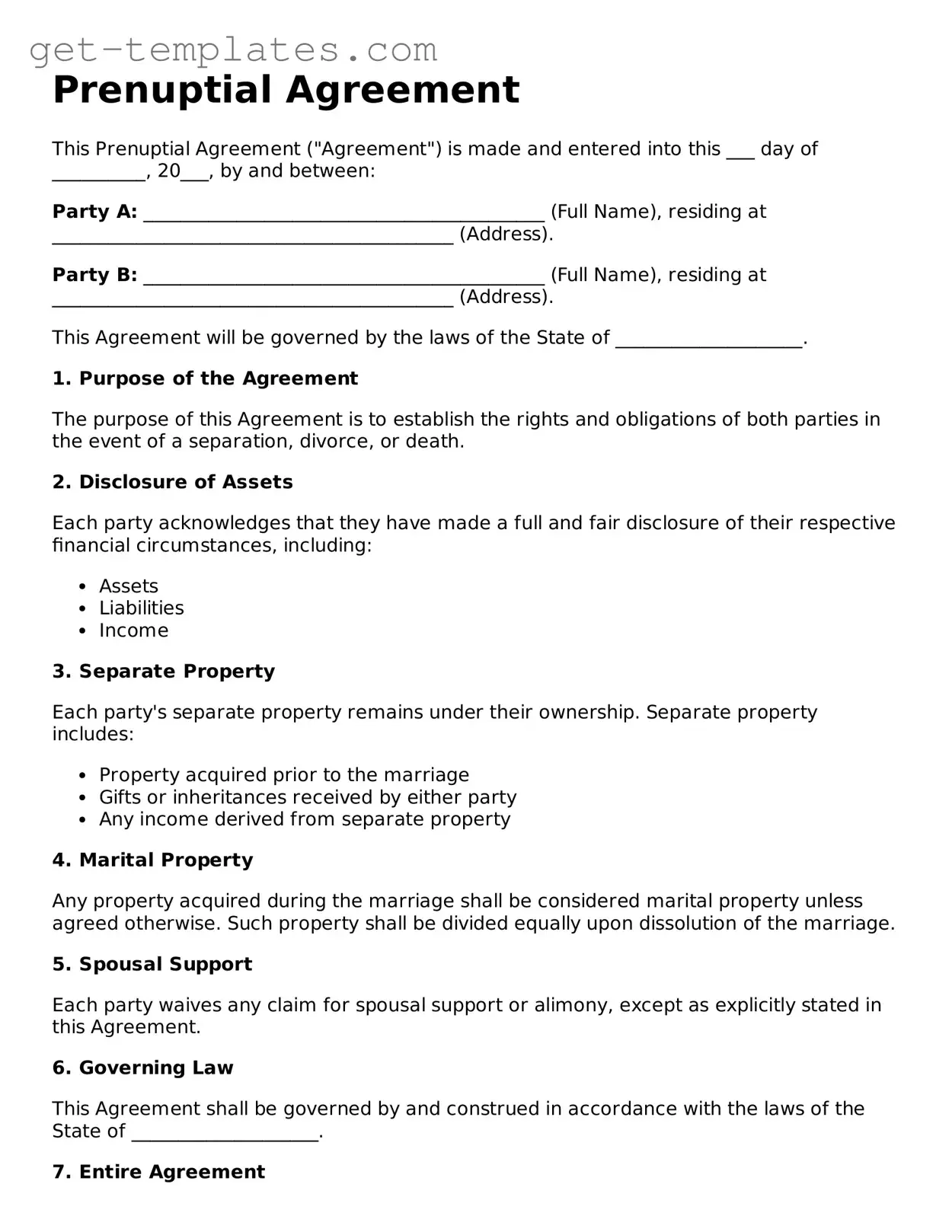Attorney-Approved Prenuptial Agreement Form
A Prenuptial Agreement is a legal document created by two individuals before they enter into marriage, outlining the division of assets and financial responsibilities in the event of a divorce. This agreement serves to protect both parties and can provide clarity and peace of mind as they embark on their life together. Understanding the importance and implications of this form can help couples make informed decisions about their future.
Get Document Online

Attorney-Approved Prenuptial Agreement Form
Get Document Online
You’re halfway through — finish the form
Finish Prenuptial Agreement online — edit, save, download made easy.
Get Document Online
or
⇓ PDF Form
